RESEARCH AND ORIENTATION WORKSHOP ON FORCED MIGRATION
Fifth Annual Research & Orientation Workshop
in
Global Protection of Migrants and Refugees
Kolkata, 16-21 November 2020
Participants
Participants of Module A: Global Protection of Refugees and Migrants with Emphasis on Protection in the Time of a Pandemic
Name & Details of the Participants

Sehal Jain, Research Scholar, University of Rajasthan (Email: sehaljain104@gmail.com)
Bionote: Sehal Jain is a research scholar with the Department of Political Science, University of Rajasthan Jaipur. She has completed her graduation and post graduation with excellent scholastic records. She graduated from Miranda House, University of Delhi with Honors in Political Science and completed her Masters from Hindu College, University of Delhi. She aspires to be a professor in future and has a keen interest in research and academics. She also has a passion for Social Service and is currently a part of Youth For Seva NGO giving Menstrual Hygiene programmes to girls in government schools.
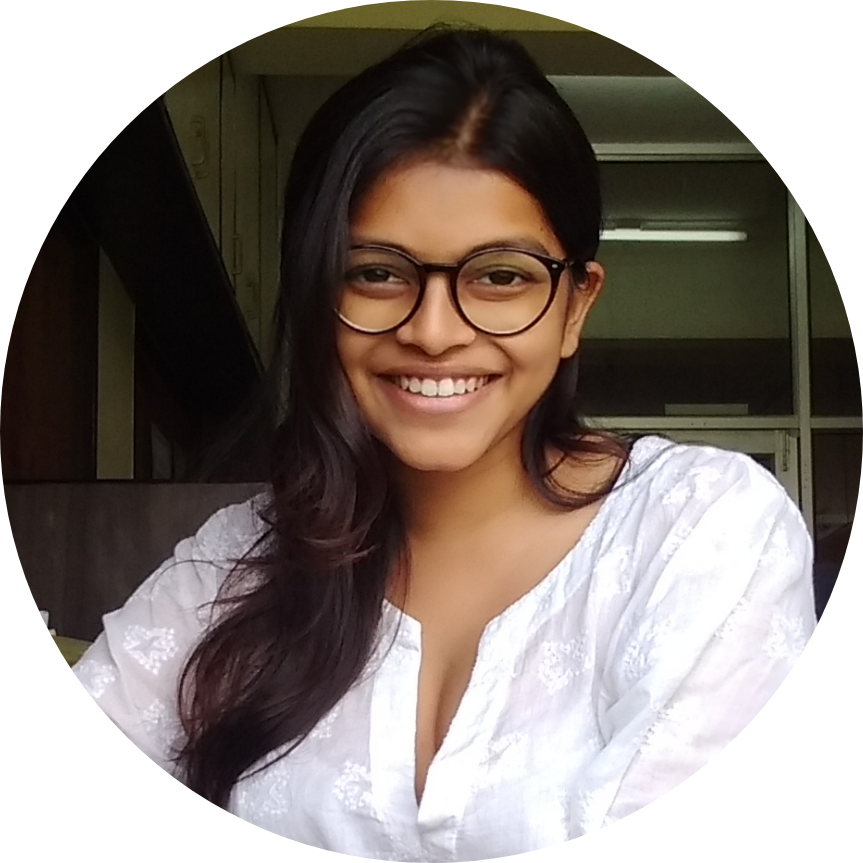
Kusumika Ghosh, Research and Programme Assistant, CRG (Email: kusumika@mcrg.ac.in)
Bionote: Kusumika Ghosh holds a Master degree in Peace and Conflict Studies with the Institute Gold Medal from the Tata Institute of Social Sciences, India. She will start her doctoral studies at Dublin City University, Ireland in January 2021. Her research interests centre on the issues of gender, citizenship and socio-political implications of the two when combined, particularly in Northeast India. In 2019, she co-authored and published a volume of the Peace Studies Series at the North Eastern Social Research Centre titled Landscape of Conflicts and Peace in the Northeast: the role of Religion. She is currently associated with the Forced Migration Studies desk at Calcutta Research Group as a Research & Programme Assistant.
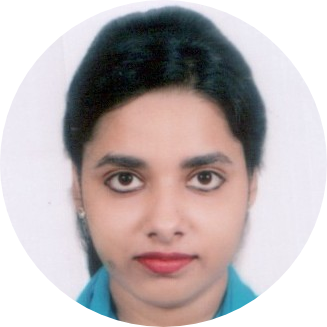
Sabahat Ambreen, PhD Candidate, Jadavpur University (Email: sufisaba75@gmail.com)
Bionote: Sabahat Ambreen is a Doctoral Student in the Department of International Relations, Jadavpur University, Kolkata, India. She graduated with Political Science majors from Presidency University and completed her Masters in International Relations from Jadavpur University. She has submitted a chapter for a book entitled “Sustenance and Development in the Tea Gardens of Assam and North Bengal” which will be published in 2020. She has worked as an Anchor at Doordarshan Kendra (DDK) and hosted talk shows. In August 2020, she has submitted another chapter for an upcoming book on ‘COVID-19 in South Asia.’ Her interest lies in Migration Studies and her current research is on the challenges and complexities of Mixed Migration in the Eastern Mediterranean Region.

Sohini Sengupta, Assistant Professor, TISS, Mumbai (Email: sohini.sengupta@tiss.edu)
Bionote: Sohini Sengupta has a PhD in Anthropology from the School of Oriental and African Studies (SOAS) University of London, Master of Arts in Social Work from TISS, Mumbai and Bachelor of Science with Honours in Chemistry from Miranda House, University of Delhi. She has experience in working with grassroots organization, drought response programmes and public policy making and has worked with Oxfam and as a research fellow with the World Commission on Dams-Social Impacts Team in South Africa. Her research interests include Indigeneity, Identity and Land Rights; Colonialism, Agrarian Change, Environmental History; Gender, Development, Feminist Anthropology; Digital Anthropology and New Media; Poverty, Culture; Social Protection and Social Policy.
Participants of Module B: Migrants and the Epidemic: Gender, Race, and Other Vulnerabilities
Name & Details of the Participants
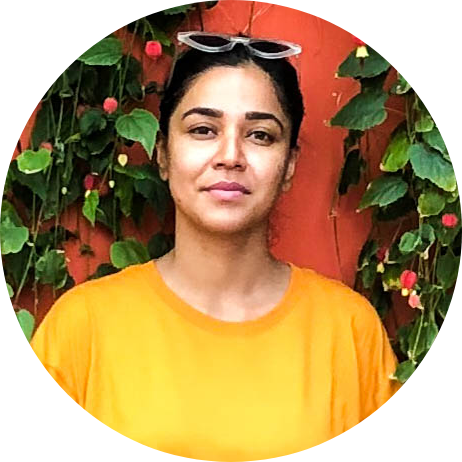
Ankita Singh, Malavia Centre for Peace Research, Banaras Hindu University (Email: ankitarishivanshi@gmail.com)
Bionote: Ankita Singh is working as a researcher,pursuing her Ph.D from MCPR, BHU. Her Ph.D is focussed on the urban commons and public spaces in ancient city of Varanasi and the role they play in building community peace. Ankita has keen interest in changing dynamics of urban India and has worked for around five years on issues pertaining to urban sector and development, at the National Institute of Urban Affairs, New Delhi; Indian Institute of Public Administration, New Delhi; Global Sustainable Energy Solutions Pvt Ltd. New Delhi. She has also taught at Amity University, Noida, in the capacity of a Visiting Faculty.
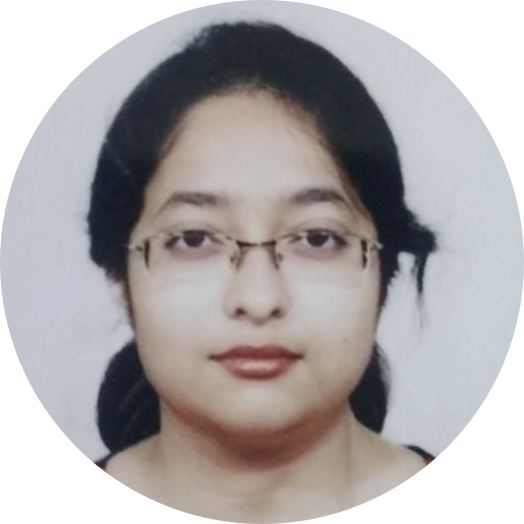
Somali Bhattacharya, PhD Scholar, Dept South and South-East Asian Studies, University of Calcutta (Email:bhattacharyyasomali@gmail.com)
Bionote: Somali Bhattacharya did her masters in South and South-East Asian Studies, and at present is a doctoral researcher in the department of South and South-East Asian Studies, University of Calcutta. Her research area spans through Gender, Forced migration and Informal labour in the Neo-liberal era in the post-colonial urban centres, with particular reference to Dhaka and Kolkata. As part of her Doctoral programme she conducted an ethnographic study with the female migrant labourers who work in the Garment factories in the Bangladeshi capital Dhaka. Conducting a fieldwork with the female garment workers presented the opportunity to be acquainted with the rudiments of their lived experiences in the urban centres. She did a summer internship and was a DAAD Pre-doctoral visiting fellow in the faculty of Sociology, University of Bielefeld, Germany.
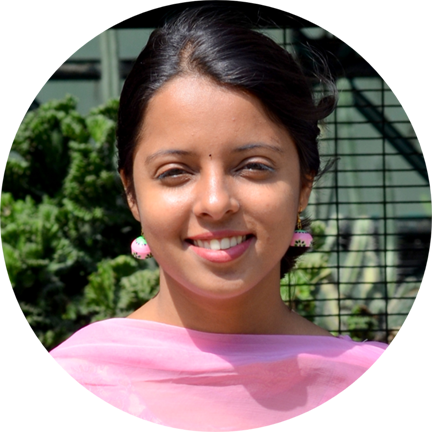
Gurmeet Kaur, Doctoral Candidate, Dept. of Women Studies and Development, Punjab University, Chandigarh (Email: gur1121290@pu.ac.in)
Bionote: Gurmeet Kaur has been a scholar of women’s studies and Development for more than half-decade and is presently associated with the Department Cum Centre for Women’s Studies & Development, Panjab University in the capacity of Doctoral Candidate. Her research work concentrates on Socio-Economic status of Refugee Women in India and specifically in the context of Tibetan Women in Exile. She has also worked with IBM Daksh, WECAN International, SAGE Sustainability. Her research interest covers gender interaction in the disciplines of Buddhism, Border and Refugee Studies. She has also taught the subject of gender studies, feminist theory to graduate and postgraduate students respectively in Panjab University.
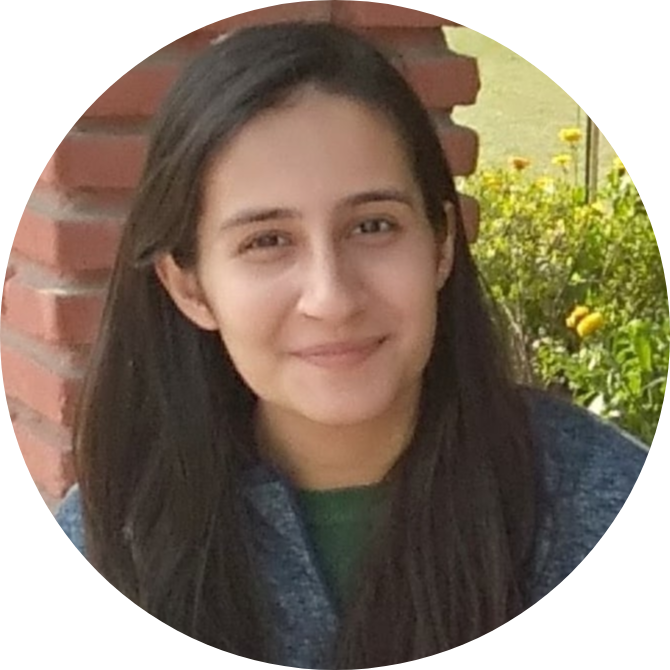
Surbhi Mehta, PhD Scholar Nelson Mandela Centre for Peace & Conflict Resolution Jamia Millia Islamia University
Email: msurbhi210@gmail.com
Bionote: Surbhi Mehta is a research scholar at Nelson Mandela Centre for Peace and Conflict Resolution, Jamia Millia Islamia, New Delhi, India. Formerly as a journalism and mass communication graduate, she has worked with United News of India, Hill+knowlton Strategies and Dainik Jagran. She holds a Masters in Conflict Analysis and Peace Building. With a keen interest in the ideas of peace building and political and social transformation in post-conflict societies, her area of work attempts to understand the link between Cultural Preservation and Refugee Communities with specific focus on Exiled Tibetan Refugees in India.
Participants of Module C: Neo-liberalism, Migrant Labour, and the Burden of the Epidemic
Name & Details of the Participants
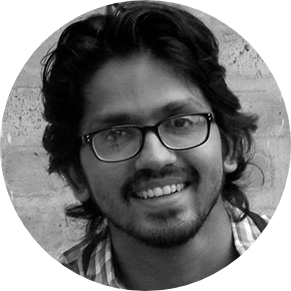
Aravind Unni, Thematic lead Urban Poverty, Indo Global Social Service Society (Email: aravind@igsss.net)
Bionote: Aravind Unni has completed his B.Arch from Jamia Millia Islamia, New Delhi and M.S. Arch from University of California- Berkeley, and is currently pursuing his PhD on Urban Social Movements from Tata Institute of Social Sciences in Mumbai. He is working as Urban Poverty Thematic Lead with Indo-Global Social Service Society, and handling developmental interventions with the most marginalized sections of the urban poor in more than 30 cities spread across 15 states. His core area of interest for research and action on urbanization and its intersection with poverty in cities, and has hands-on experience in working with communities over the last six years in participatory planning, formulating policy recommendations for people’s concerns related to housing and livelihoods, and advocating for equitable and just cities. He is currently based out of Delhi
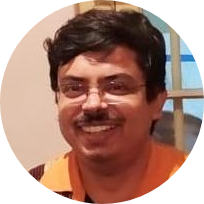
Rajat Kanti Sur, Research Fellow, CRG (Email: rajatkanti@mcrg.ac.in)
Bionote: Rajat Kanti Sur is a Research Fellow at the Mahanirban Calcutta Research Group, Kolkata. He did his PhD from the Department of South and South-East Asian Studies, the University of Calcutta in 2019. His PhD dissertation is based on the evolution of subaltern popular performances in the postcolonial period where he has chosen the evolution and decline of the ‘Sawng’ performances in Kolkata as a case study. He contributes several articles in different journals and books like Indian Economic and Social History Review, Itikatha, and Dynamics of Dissent (book). He is associated with Indian History Congress, BangiyaSahityaParishad and The Asiatic Society, Kolkata as a member and some well-known NGOs and civil society organizations dealing with women, labour and social exclusion related issues.His current research is based on the new trends in migration and its impact on the popular performances in South Asia.
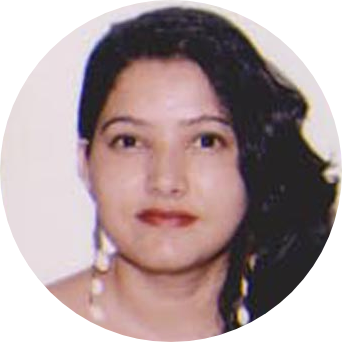
Zeba, PhD Scholar, Jawaharlal Nehru University (Email: zebabhtt@gmail.com)
Bionote: “Zeba is a PhD Research Scholar at Centre for the Study of Law and Governance (CSLG), Jawaharlal Nehru University (JNU), New Delhi. Her PhD work deals with questions of liberalism as a political creed. It explicates how the ideological concerns of liberalism can be reconciled with the political demands of socio cultural groups manifested in the demands for political autonomy. It has been situated in the context of political demands for autonomy in Jammu and Kashmir. Her MPhil work dealt with concerns of political and local autonomy in context of local governance in Jammu and Kashmir. Her academic publications and conferences are centred on theorising political autonomy, liberal state, Local governance and Discourse of autonomy in Jammu and Kashmir.”
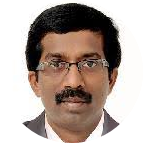
Francis Adaikalam, Assistant Professor at Loyola College, Chennai (Email: v.francis@gmail.com)
Bionote: Francis Adaikalam is an Assistant Professor at Loyola College, Chennai. He had done his MPhil on Social Medicine and Community Health from Jawaharlal Nehru University, Delhi. His publications include “The implications of neo-liberalism for social work: reflections from six country international research collaboration” at International Social Work Journal for a special issue on Global Agenda for Social Work and Social Development. Accepted and Manuscript submitted for publication. Manuscript ID: ISW-13-0055.RI. “ Microfinance System and Rural Housing: Generation of a Model from the Case of Sivagangai District, Tamil Nadu, India” in a edited book Volume II: Environmental Change and Sustainable Social Development by Sven Hessle. Publisher Ashgate Publishing Ltd. Surrey, U.K. 2014.
Participants of Module D: Statelessness with Emphasis on De facto Statelessness and the Rightlessness of Sections of Population
Name & Details of the Participants

Sampurna Bhaumik, Doctoral Scholar, Dept of Political Science University of Hyderabad (Email: sampurnabhaumik31@gmail.com)
Bionote: Sampurna Bhaumik is a doctoral candidate working under the supervision of Dr.Sanjay Palshikar at the department of Political Science, University of Hyderabad, India. Her research interests primarily include border studies, security studies, identity, migration and South Asian politics among other themes. Sampurna ‘s MPhil dissertation attempted to analyse how the idea of border manifests itself in the everyday existence of borderland communities living along the Indo-Bangladesh borderlands, particularly focusing on the erstwhile enclaves between the two States. Her current doctoral thesis focuses on the discourse of identity and migration in the borderlands, taking up the case study of the Mog/Marma people in India and Bangladesh. Sampurna’s paper titled “Rigid Fences and Fluid Societies : Crossing the India-Bangladesh Border” was published in a 2019 publication titled ‘Borders in South Asia : States, Communities and People’ edited by Dr. Subramanyam Raju.

Ritambhara Malaviya, Assistant Professor, Dept of Political Science, Kamla Nehru College, University of Delhi
(Email: ritambhara.m@gmail.com)
Bionote: Ritambhara Malaviya obtained her Ph.D. from Jawaharlal Nehru University and is presently Assistant Professor at the Department of Political Science, Kamala Nehru College, University of Delhi. Her areas of interest are International Relations and Peace and Conflict Studies with special reference to the interface between the media and international politics. She has presented papers on these themes at various national and international seminars and published related papers in various books and journals. She worked on the interface between the media, state and discourse on terrorism in her doctoral work, studying the English and Hindi newspapers in India.

Srinita Bhattacharjee, PhD Candidate Centre for Study of Indian Diaspora, University of Hyderabad
Email: srinitabhattacharjee@gmail.com
Bionote: Srinita Bhattacharjee is a doctoral candidate at the Centre for the Study of Indian Diaspora (CSID), University of Hyderabad, India. Her research pans the intricacies of Subaltern Migration in the Global South and North while probing the politics of literary and cultural representations of the disenfranchised migrants. Srinita is an English Major from Lady Brabourne College, University of Calcutta, and earned her post-graduate degree in English and Cultural Studies from The English and Foreign Languages University (EFLU). She also has an MPhil from CSID. She is a recipient of the ICSSR Doctoral Research Fellowship. She was a visiting student at the Dept. of Comparative Literature, Harvard University in 2019.

Shamna Thacham Poyil, Ph.D. candidate in the Department of Political Science at the University of Delhi
Email: shamnamehanaz@gmail.com
Bionote: Shamna Thacham Poyil is a Ph.D. candidate in the Department of Political Science at the University of Delhi. Her research focuses on the narrative of statelessness of the Rohingyas and the politics of exclusion where denial of citizenship is used as a strategy for ethno-political nation building in Post-colonial Burma, rendering minorities like Rohingyas Stateless. Her M-Phil dissertation titled “Birds of Freedom: Depiction of LTTE militant women in Tamil Cinema” explored the representation of militant women challenging the binary of agency and victimhood. Apart from holding a Bachelors degree in Electronics and Instrumentation Engineering, she graduated summa cum laude from her Masters in Conflict studies and peace building from Jamia Millia Islamia, New Delhi. Her recent publications include ‘National Identity and Conceptualization of Nationalism among Rohingya’ in Citizenship, Nationalism and Refugeehood of Rohingyas in Southern Asia (2020), ed. Nasreen Chowdhory& Biswajit Mohanty; ‘The Global Compact of Refugees: A viewpoint of Global South’, Refugee Watch (2020) with Dr. Nasreen Chowdhory; ‘The Idea of Protection: Norms and Practice of Refugee management in India’, Refugee watch (2019) with Dr. Nasreen Chowdhory and Meghna Kajla, ‘Transitional justice, reconciliation and reconstruction process: the case of the former LTTE female combatants in post-war Sri Lanka’ with Dr. Nasreen Chowdhory in Transitional Justice and Forced Migration (2019), ed. Nergis Canefe, Cambridge University Press.

Chandra Prakash Y, Research Scholar, Tata Institute of Social Science, Mumbai (Email: chandrucprk@gmail.com)
Bionote: Chandra Prakash Y a research scholar at Tata Institute of social sciences in Mumbai campus for last one year. Further a research fellow at Dr Ambedkar International Centre at Delhi since November 2019. I have completed post-graduation and MPhil in the field of Demography at the University of Kerala from 2012 to 2016. My PhD research currently focuses on the areas of Deportation, Statelessness, Citizenship and Repatriation as a continuum. I have published an article and four of the national and international conference presentations in various stages of completion.
Participants of Module E: Legal Regimes of Protection and the Time of the Pandemic
Name & Details of the Participants
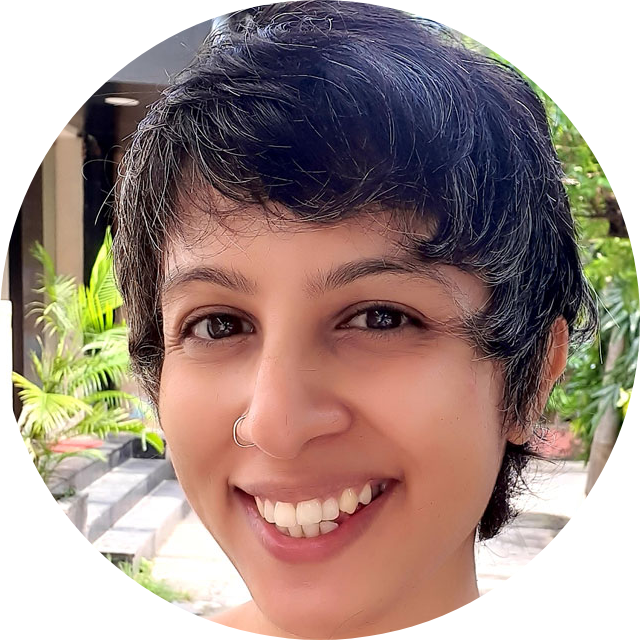
Piya Srinivasan, Research and Programme Associate, CRG (Email: piya@mcrg.ac.in)
Bionote: Piya Srinivasan is a Research and Programme Associate at Calcutta Research Group. She holds a BA and MA in English Literature from the University of Delhi, an M.Phil from Centre for Studies in Social Sciences Calcutta (CSSSC) and has been a PHD-SYLFF fellow at the Centre for Study of Law and Governance, Jawaharlal Nehru University. Her research focus lies at the intersection of law, society, culture, gender and citizenship. Her doctoral thesis is titled “Literature on Trial: Law, History and Memory in India”. She has done ethnographic research relating to juvenile justice and the rights of street children for her M.Phil thesis. She has previously worked on the newsdesk at Mail Today and Mint Lounge and with Save the Children, New Delhi, as a communications professional. She has published both research papers and written culture pieces for various publications. She writes book reviews for India Today and has been a freelance editor with various academic and non-fiction publications.
he discourse of identity and migration in the borderlands, taking up the case study of the Mog/Marma people in India and Bangladesh. Sampurna’s paper titled “Rigid Fences and Fluid Societies : Crossing the India-Bangladesh Border” was published in a 2019 publication titled ‘Borders in South Asia : States, Communities and People’ edited by Dr. Subramanyam Raju.
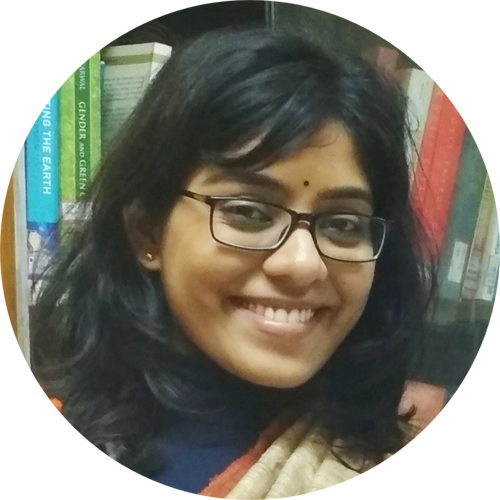
Moitrayee Sengupta, PhD Student & Project Assistant Dept of International Relations, Jadavpur University
Email: msgdec@gmail.com
Bionote: Moitrayee Sengupta is a PhD candidate at the Department of International Relations, Jadavpur University, Kolkata. She has worked as project assistant in the Department of International Relations, Jadavpur University, on a research project entitled ‘Disaster-induced Displacement: Developing a Normative Framework and International Policy’ under the Rashtriya Uchchatar Shiksha Abhiyan (RUSA) 2.0 Centrally Sponsored Scheme. Previously, she completed M.Phil in International Relations in 2019 and Masters in Political Science with International Relations in 2017. She has been the recipient of the Ryoichi Sasakawa Young Leaders Fellowship in 2018, awarded by the Tokyo Foundation for Policy Research, Japan, for pursuing research at the M.Phil Level. She has also taught Political Science in the undergraduate level as guest faculty for a period of six months at Victoria College, Kolkata in 2017 and 2018. Her research interests include international relations, international law, and climate migration studies .
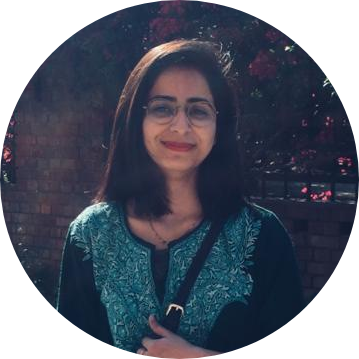
Farhana Latief, Doctoral Candidate, Jawaharlal Nehru University (Email: janfarhana@gmail.com)
Bionote: Farhana Latief is a legal researcher. She has been working in the fields of law and forms of systems of governance, political and institutional economics, and the functioning of the criminal justice system. As a researcher, Latief’s interest and involvement include Law and Development, the Question of Access to Justice and the Global Development Discourse. She has previously worked with Tata Institute of Social Sciences (Mumbai), and Association of Parents of Disappeared Persons (Kashmir). Currently, Farhana Latief is a doctoral candidate at the Centre for Study of Law and Governance, Jawaharlal Nehru University and her work focuses on Depoliticisation of Development in Conflict Regions, with a particular focus on Development Discourse in Kashmir.
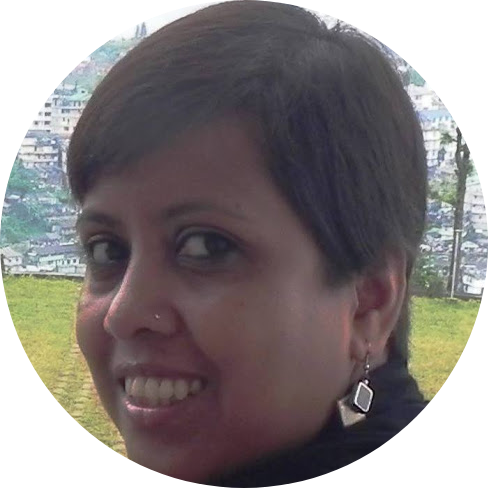
Anjuman Ara Begum, Human Rights Researcher and Women Rights Activist (Email: email4anju@gmail.com)
Bionote: Anjuman Ara Begum is a human rights researcher and women rights activists based in Guwahati. She studied law and is a member of the Calcutta Research Group. She is currently associated with PurbaBharati Educational Trust and WinG Assam, Guwahati and working on gender education and human rights.
Participants of Module F: Ethics of Care, Public Health, and the Migrants and Refugees
Name & Details of the Participants
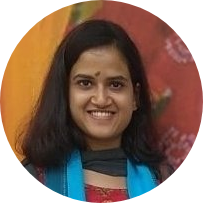
Deeksha, PhD Scholar, School of Social Work, Tata Institute of Social Sciences, Mumbai (Email: deeksha.0704@gmail.com)
Bionote: Deeksha is a PhD candidate at the School of Social Work, Tata institute of Social Sciences, Mumbai. Her doctoral study explores migration for healthcare as a phenomenon in New Delhi, India. Her research interest includes migration, urban poverty, housing, and access to healthcare. As a social worker, she has worked with various marginalized communities and grassroots organizations across urban and rural India. Deeksha also holds the prestigious Dalai Lama Fellowship which focuses on ethical leadership.

Saima Farhad, Assistant Professor, Dept of Social Work, University of Kashmir (Email: saimafarhad@gmail.com)
Bionote: Saima Farhad is an Assistant Professor in the Department of Social Work,University of Kashmir. She received her MA in Social Work (2005) from University of Kashmir, and PhD from Tata Institute of Social Sciences, Mumbai (2017). Her Doctoral Thesis, based on qualitative interviews,studied Suffering and Agency in the Kashmir Conflict. Her research interests include Everyday Life, Resilience, Conflict Intractability and Migrants.

Utsa Sarmin, Research Fellow, CRG (Email: utsa@mcrg.ac.in)
Bionote: Utsa Sarmin is a Research Fellow at the Calcutta Research Group. She holds her BA (Honours) and MA in Political Science from the University of Delhi. She has completed her MPhil in Development Studies from the University of Cambridge. She had received the Great University of Cambridge Scholarship for her MPhil course at Cambridge. She worked as a contributing journalist for Free Press Kashmir in Srinagar from where she reported on conflict and issues related to conflict. She has also worked with the Latin American news organization teleSUR English in Quito, Ecuador as a news writer and occasional on-camera political commentator. Utsa has presented research papers in various seminars and conferences and published news stories and articles in various local, national and international media houses. Her research interests include conflict, gender, violence, social movement and activism.
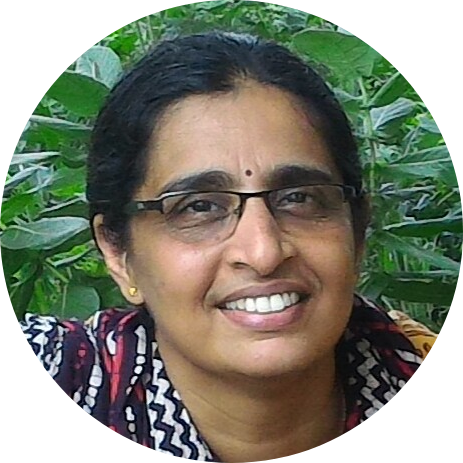
Jyothi Krishnan, Independent Researcher
Email: jyothikr07@gmail.com
Bionote: Jyothi Krishnan is an independent researcher and has worked on various aspects of marginalisation and vulnerability in the state of Kerala in India. She has worked on issues related to forest conservation and livelihoods of tribal communities, local governance reforms, social protection measures, social audit and accountability initiatives.
